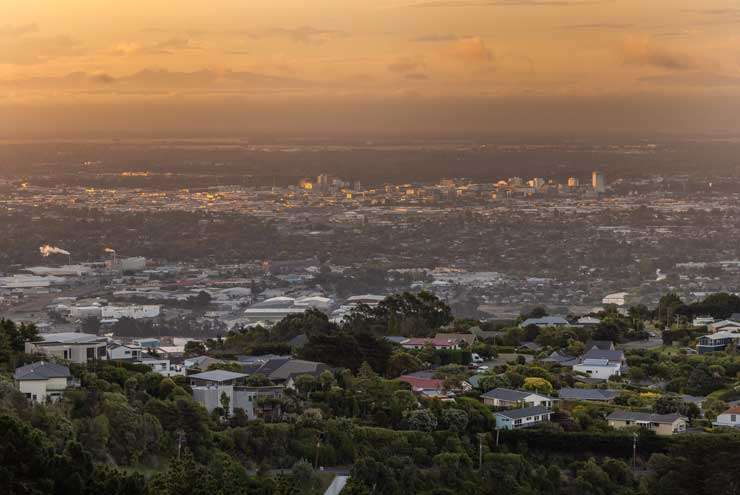Four out of five Kiwis believe house prices are too high – and two out of five think prices should be forcibly brought down by the Government.
These views, from a OneRoof-ConsumerLink survey conducted at the end of last month, reinforce attitudes around the housing market from a similar survey from October last year.
Despite a softening in the market between then and now, little has changed in how New Zealanders view house prices with respondents living in Auckland and Wellington in particular driving the perception prices are “much too high”.
The poll results also reveal there is considerable uncertainty among New Zealanders, especially non-homeowners and households with children, about being able to buy a house in the current market with 73% agreeing that applying for a home loan and being accepted is too hard.
Start your property search
This result, along with people who live in Wellington, and people aged 40 to 49, means more than half of Kiwis are not confident they can buy a home.
Over 40% (42 %) of Kiwis agree the Government should forcibly bring house prices down to pre-Covid levels with that result driven by non-homeowners, younger age brackets and those on lower incomes.
However, while there has been a slight fall in home ownership since the last survey in October, the majority of those who do own homes expect good returns if they were to sell now – three in five feel they will receive more than a 50% return of the cost of their home.
Long-term home ownership is also perceived to have greater returns than the cost, but there is also a slight sense of significant returns from short-term property owners if they were to sell now.
The Poll Results
OneRoof commissioned ConsumerLink to poll Kiwis on their attitudes to house prices in New Zealand. The survey of 1000 Kiwis around the country was run last month.
According to the results, the majority of New Zealanders perceive current house prices to be too high. This perception is particularly strong among those living in the major cities – Auckland and Wellington – and younger Kiwis.
The poll also found that 73% of Kiwis thought that applying and being accepted for a home loan was too hard, with the belief strongest among non-homeowners and households with children.
More than half of those polled did not feel confident they would be able to buy a house in the current market. This sentiment was highest among Kiwis aged 40 to 49, those living in Wellington and those who find applying and being accepted for a home loan too hard.
However, a quarter of Kiwis did feel very confident about buying. This sentiment was highest among South Islanders and couples with dual incomes and no children.
According to the poll, 61% of respondents who are homeowners feel they will get more than 50% return on the cost of their home if they were to sell it in the current market. This sentiment was significantly higher among those aged 60-plus.
Forty-two per cent of respondents agreed that the Government should forcibly bring house prices down to pre-Covid levels, compared to 32% who disagree. Strong agreement is higher among non-homeowners, Kiwis aged 18 to 29 and women.
1. Perceptions of house prices have not shifted since the October 2021 survey, with more than 80% of Kiwis believing house prices to be too high.
2. The majority of Kiwis agree that applying and being accepted for a home loan is too hard.
3. More than half of Kiwis don’t feel confident in buying a house in the current market.
4. Home ownership is slightly down compared to the results of the 2021 poll, but 61% of homeowners feel they would get a more-than-50% return on the cost of their home if they were to sell it in the current market. Unsurprisingly, those who have owned their home for longer feel they will get significant returns if they were to sell now. However, 5% of those who have owned their home for less than a year think they can get more than double the cost back if they were to sell now.
5. Agreement that the Government should forcibly bring house prices down to pre-Covid levels remains the same compared to October 2021. This is driven by those who don’t own a home, and younger and lower income demographics.
The Reaction
James Wilson, director of valuations at OneRoof’s data partner, Valocity, says the poll highlights how housing market attitudes in New Zealand depend on whether or not you own a house.
He was surprised the number of people wanting prices to plummet had not increased, but says that might just reflect the fact a lot of people who wanted to buy a home have now bought one.
“You’re seeing that play out in the market now. For example, sales volumes are down compared to what they have been in the last few years,” he says.
Wilson was also a little surprised at the strong perception it was so hard to get a mortgage and suspects some people who are concluding this haven’t tried to get one. “If they are suitable or qualified as a borrower the process isn’t perhaps as onerous as people might think.”
His key advice is that before writing off home ownership, people should go and talk to the bank or a good broker and find out the reality.
“Find the facts out because I think a lot of people are pleasantly surprised at just how close they are to being able to buy that property. I think there is a wee bit of a perception reality void there.”
For those who want the Government to forcibly lower prices, Wilson also says that would mean some big economic shocks. The irony is that might mean lending conditions get tougher so those wishing for price tumbles might not get that mortgage anyway.
CoreLogic’s chief property economist Kelvin Davidson says the survey results show there are always two sides to the housing market. “For example, first-home buyers would love house prices to be lower – existing homeowners, not so much.”
House prices falling back to pre-Covid levels might be great for people wanting to buy a house but would not be so good for the economy, leading to wider financial instability.
“That would involve a 20 or 25% fall in house prices and would create a lot of uncertainty across the economy.”

Kiwis in the South Island, Christchurch from Mt Pleasant, were more confident about buying a house than those in the North Island. Photo / Peter Meecham
What the country really needs is a period of flat or slightly falling prices, “just a gradual adjustment that allows affordability to improve and household incomes to catch up.”
The fact so many New Zealanders are not confident about being able to buy a house is a concern, Davidson says.
The homeownership rate has come down over time which means more people are renting which brings insecurity.
“I suppose society has to make judgments on what they want and I suppose the history of New Zealand has shown that home ownership is if not a right then it's a very desirable thing for society and New Zealand and the fact that such a high percentage feel they can't purchase a home is going to be a concern for sure.
“I don't think too many people would look at these kind of results and go, ‘I’m happy about that’. It’s going to be a concern for lots of people.”
Independent economist Tony Alexander was at a loss as to how the Government would be able to achieve a forced reduction in prices to pre-Covid levels.

Valocity head of valuations James Wilson says the poll results highlight the divide between homeowners and non-homeowners. Photo / Fiona Goodall
Changes can be made via policy which impact prices, such as changes to planning rules being pushed through with agreement from the National Party, which will lead to further intensification, but that’s a long-term policy goal.
“In order for the Government to make people step forward to sell so you get a big correction in house prices you need to scare the bejesus out of them and the most effective way of that is to make people think they are going to be unemployed, so the Government would have to come out and say we are going to screw the economy up you’re going to lose your job.”
A spokesperson for Housing Minister Megan Woods says the Government believes the best way to reduce prices over the long term is by continuing to focus on increasing supply.









































































